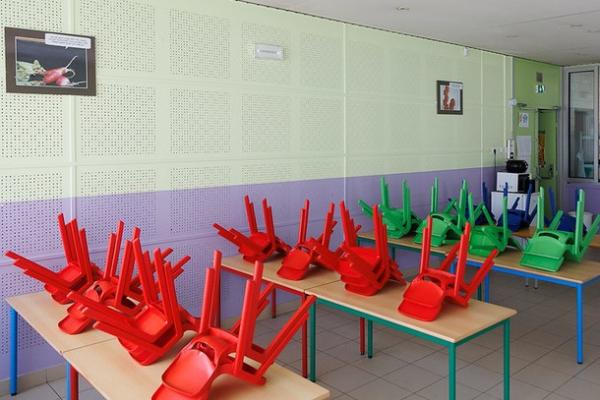
City-to-City Exchange: Schaerbeek and Copenhagen join forces for sustainable food
Schaerbeek's commitment to sustainable food
Schaerbeek, a municipality in the Brussels-Capital Region, has been actively involved in various networks such as EnergyCities and ICLEI, underlining the city's commitment to the green transition and sustainable urban development, especially within its educational institutions. Schaerbeek's involvement in initiatives such as the Eating Cities Summer School and seminars on sustainable food procurement demonstrates its expertise and willingness to integrate and innovate within its food systems.
At the heart of Schaerbeek's strategy is the local pilot project at De Kriek School, which uses the Whole School Food Approach (WSFA). This approach rethinks the way food is integrated into educational settings, promoting health, sustainability and educational outcomes. Being replication city in the SchoolFood4Change project, Schaerbeek is ready to implement and scale up these strategies in its 20 municipal schools.
Copenhagen: a pioneering city in school food sustainability
Copenhagen is a frontrunner in the integration of food education in schools, with over a decade of experience in developing engaging, practical food strategies. Copenhagen's food strategy, adopted in 2020, focuses on children's food literacy and ensures food production in schools to improve quality and participatory learning.
The Danish capital's extensive experience in running cooking schools with the active participation of children serves as a model for Schaerbeek. Such initiatives not only enrich children's sensory and practical experiences, but also equip them with the knowledge and skills to make informed food choices.
Mutual benefits of the City-to-City Exchange
The cooperation between Schaerbeek and Copenhagen has been structured in such a way that there are significant mutual benefits. For Schaerbeek, the exchange will facilitate the improvement of its municipal climate plan, in particular how to adapt and expand local food strategies based on Copenhagen's successful model. This includes understanding governance structures, stakeholder engagement and education tactics within the food system.
From Copenhagen's perspective, working with Schaerbeek provides an opportunity to share their successes and learn how their models can be adapted in a different cultural and administrative context, potentially leading to new insights and improvements in their own approaches.
The way forward
The City-to-City Exchange held in April 2024 has included school visits and discussions on sustainable practices across the four pillars of the WSFA: policy & leadership, food & sustainability, education & learning, and community & partnership. Lessons learned from these visits will be compiled into a detailed report, providing a roadmap for both cities to more effectively refine and implement sustainable food strategies.
The Schaerbeek-Copenhagen exchange is more than a transfer of knowledge: it underlines the value of City-to-City Exchanges as ways for urban areas to learn from each other and boost their capacities. These exchanges are designed as short-term, focused opportunities for cities to collaborate directly and intensively. This successful cooperation invites all cities facing food challenges or other urban issues to seize the opportunity to learn from fellow EU cities through the EUI City-to-City Exchange mechanism, enriching their own urban solutions through shared knowledge and collaboration.
